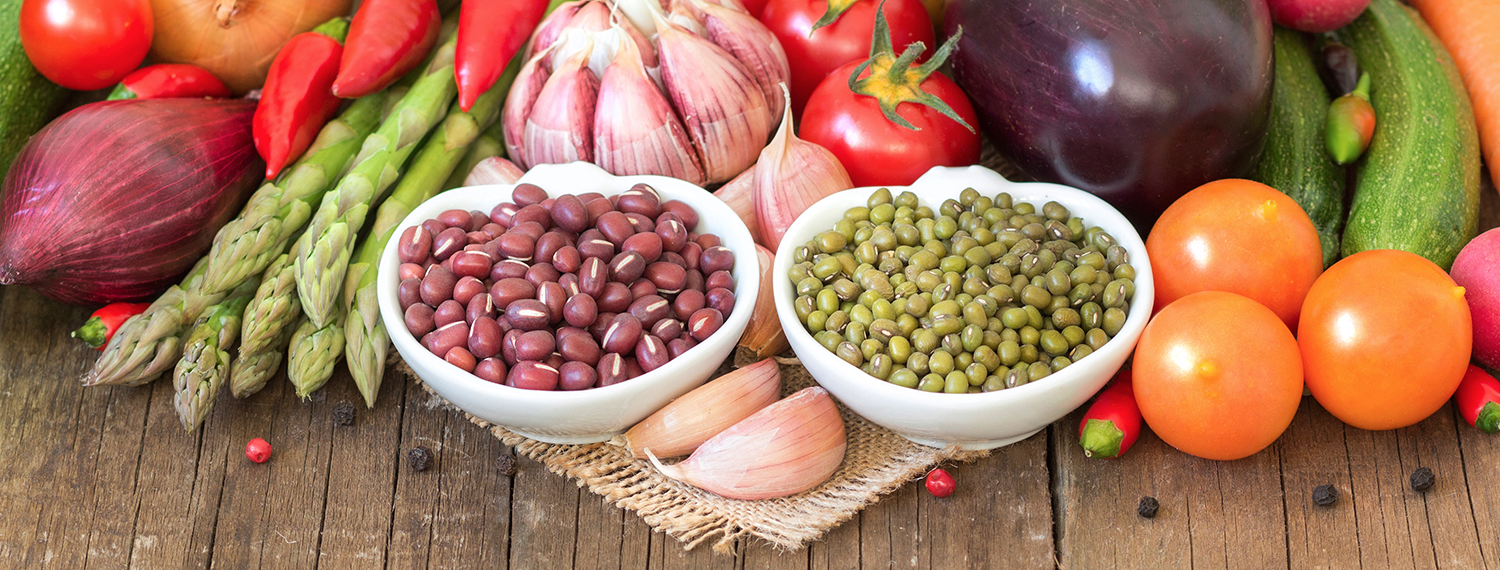When the topic of plant-based eating comes up, everyone obsesses about getting enough protein or calcium.
However, the reality is that if you eat a varied whole food plant-based diet, you will get plenty of both without having to think about it.
A bigger concern in any diet is whether or not you are getting enough fiber.
Fiber consumption is currently at an all-time low. According to recent studies, only 3% of Americans are meeting the recommended intake. Translation? A whopping 97% of Americans are not eating enough dietary fiber!
What Exactly IS Fiber?
Fiber is a contradiction in terms; it’s something the body needs but never actually digests or absorbs.
You need two ‘types’ of fiber – soluble and insoluble, in order to maintain good health.
- Soluble fiber dissolves in water and serves to slow digestion while lowering blood glucose and cholesterol levels. Foods rich in soluble fiber include citrus and other fruits, vegetables like carrots and peas and grains such as oats and barley.
- Insoluble fiber is not digested like other foods and that’s why it’s responsible for moving things through your system and therefore good for people who suffer from constipation. Insoluble fiber is found in whole grains like wheat as well as nuts and beans. Potatoes are rich in insoluble fiber and so are vegetables like green beans and cauliflower.
Why Do I Need Fiber?
Fiber isn’t just for constipation relief. Getting plenty of fiber in your diet also helps you control your weight, lower cholesterol, promote healthy blood sugar levels and reduce the risk of type 2 diabetes and heart disease.
Why Are so Many Foods Depleted of Fiber?
Simply put, processing food strips out the fiber. Refining grains like rice removes the outer coat of the grain, – the fiber rich part of the whole food. Peeled fruits and vegetables and pulp-free juices also lose most of their fiber in processing. What remains is a fraction of the fiber of the whole foods.
You Can’t Put the Genie Back in the Bottle
It is important to note that you can’t put the original, healthful fiber back in stripped foods. And fiber supplements are lacking in vital nutrients, vitamins and minerals. The only way to make sure you’re getting the fiber you need is to eat whole plant foods.
How Much Fiber Do I Need?
Fiber needs are different for men and women and the recommended amount changes as you age. For men under 50, the recommended daily intake is 38 grams; after 50 that drops to 30 grams. Women under 50 need 25 grams; after 50 women should get at least 21 grams.
How Do I Make Sure I’m Getting Enough Fiber?
The simple answer is: avoid processed foods and stick to whole food, plant-based eating. But here are a few tips to help you out:
- Read the food label. Packaged food with a good amount of fiber will have 2 or more grams per 100 calories. To learn more, download our Food Label Cheat Sheet.
- Eat more beans. Eat lentils, kidney beans, garbanzo beans – all beans are high in fiber and really rich in nutrients, too. Add legumes like peas for another fiber boost. Make lentil or pea soup or simply add cooked beans or legumes to fresh salads.
- Choose whole grains. Processed grains lose all their fiber and nutrients when the bran is stripped away. Select whole grain for breads and pasta and switch to brown rice.
- Don’t peel your fruits. Eat lots of fruits and, when you can, eat the peel. Of course, you can’t eat a banana peel, but leave apples, peaches, nectarines and other fruits intact for a high fiber snack (and eat organic when possible).
- Veggies and more veggies. All vegetables contain fiber, so eat lots and lots of veggies. Add ‘extra’ vegetables to soups and other dishes and make raw vegetables your ‘go-to’ snack.
- Snack smart. Choose a whole fruit or raw vegetable for snack time as they’re packed with fiber. Nuts and seeds are also high in fiber, but instead of snacks, eat them as garnish in salads and other cooked dishes.
At the end of the day, whole plant foods are the only natural source of fiber.
Fiber is an essential ingredient for a healthy diet. So load up on some of these yummy foods and use them in your favorite recipes. And always remember to drink plenty of water as you’re ramping up your fiber intake so you get the maximum benefit.


